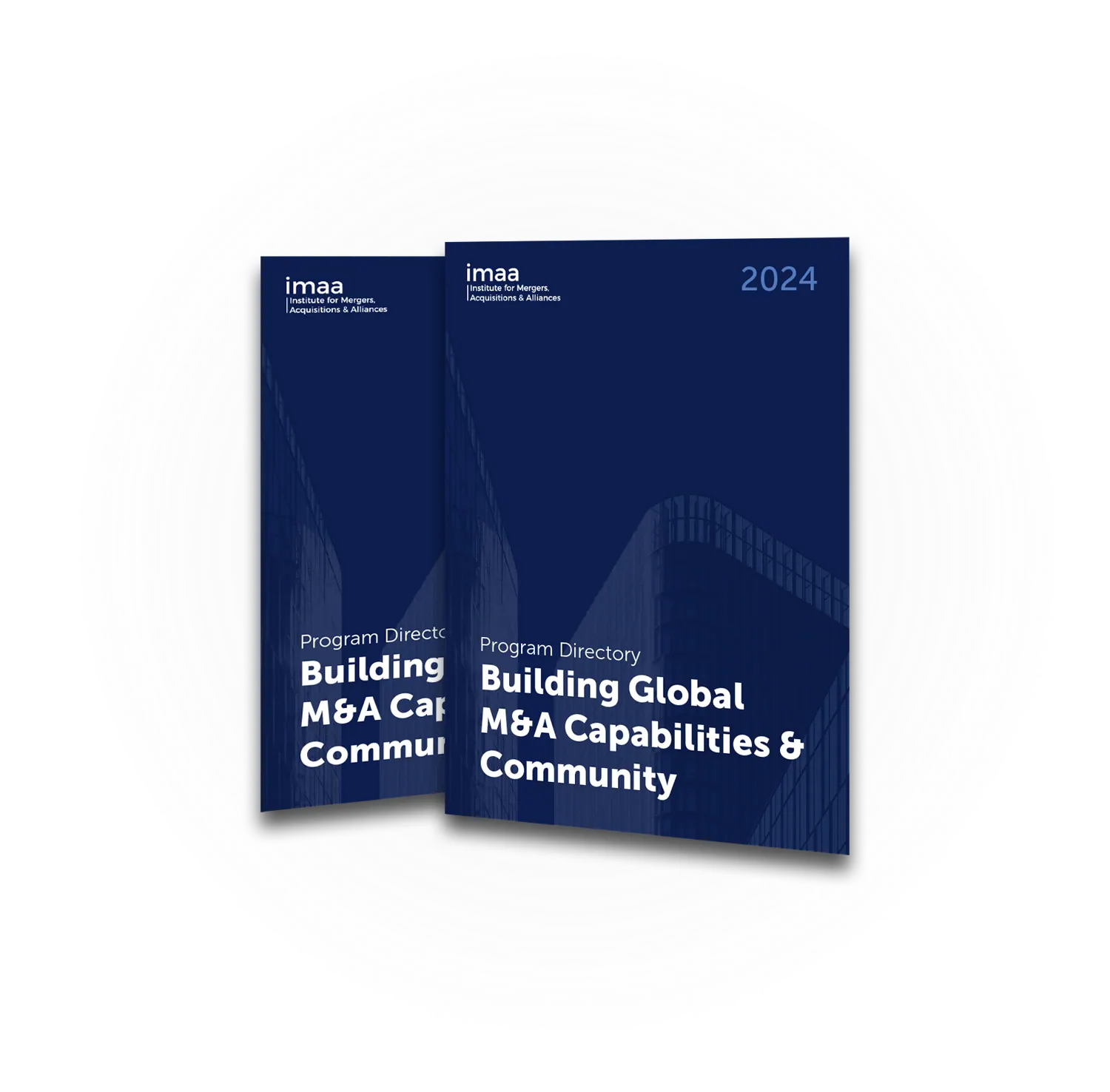Tagged: HR DD
- This topic has 38 replies, 38 voices, and was last updated 2 days, 15 hours ago by
 Mark Hassell.
Mark Hassell.
-
AuthorPosts
-
September 21, 2023 at 1:01 pm #86543
Elena Dmitrishina
ParticipantIn some of the cases it is clear even at the stage of pre-DD, i.e. deal qualification that the target would be a no-go because of the culture reasons. But overall, once in DD, I would agree that HR work would be crucial. I observed a few cases that could have been better managed if the acquirer did better job in learning the culture of the target as soon as possible and also including efforts for education of the own personnel to teach them work with the target culture. Often acquirer considers that target should adapt to the acquirer’s culture. I would say that this is rather a two way road.
Also, curious if there are any scientific approaches on this matter that M&A could employ?September 27, 2023 at 6:44 pm #86968 Christine BarnumParticipant
Christine BarnumParticipantHR diligence is certainly an important part of identifying elements of culture and identifying potential culture clash, however culture is more than just an HR topic. Having the ability to meet and greet employees across the target organization and learn what makes them tick or what they love most about their organization is critical in having a deeper understanding of how the culture actually plays out. I think it is also important for the buyer to acknowledge that their culture could potentially be improved by adopting elements of the target’s culture – no organization is perfect, and by learning from the target, it could go a long way towards assimilating the target EEs and getting them bought in early. If the cultures of both organizations are too far apart, that should be a red flag for whether the deal proceeds.
October 3, 2023 at 8:11 am #87415Mike
ParticipantI don’t think HR DD can prevent culture clash, it can just identify how likely it is and what can be done to mitigate it. Culture clash is inevitable in an M&A and to be honest, in any organization set up. The question is how severe will it be and what can be done to prevent it.
I find most orgs do not really take stock of what messages they send – I worked with a company ones that had a major culture clash between the new owner and the previous employees. They were saying all the right things but couldn’t understand why everyone still thought of the old company. But if you looked around for 5 mins, you would see half of the employees still had old company uniforms, the old companies name was still on signs everywhere and there was different practices depending of whether or not you were there when the old owner was.
November 9, 2023 at 6:38 pm #89804Amy S
ParticipantHR DD is only a fraction of the Cultural Assessment. All functions should participate and leadership helps to set the tone. Decision making is a huge part of culture and that is defined by leadership.
January 12, 2024 at 9:59 am #94812 Jamie MorganParticipant
Jamie MorganParticipantI think leadership plays a huge role here. There are many case studies where leadership of the acquirer enforce their policies and ways of working on to the target. From the outset, this creates a “them vs you” status where employees of the acquired company never feel as though they are truly part of the new entity – as if they are outsiders. Ensuring that leadership are fair, reasonable, and have clear rationale behind these decisions is critical to working towards a ‘common culture’. Get the thoughts of teams from across both target and acquirer – in many cases the acquiring company may enforce their own culture on both parties without truly understanding if their employees even benefit from it.
January 17, 2024 at 12:47 pm #95215Xin Yi Ho
ParticipantI feel HR DD is a part of DD process, which is before buyer took over the target. The culture clash will be more visible when 2 entities started to work together. I worked in a company that merge from 3 companies of the same industry. At the start, there were so much conflicts, everyone insist their way of working, their methodology was correct. It takes years to smooth out the clash. Sometime employees turnover do help to ease out such clash.
February 9, 2024 at 2:00 pm #97207Andre Catrou
ParticipantCulture clash will happen no matter what, key question is how to mitigate it by taking specific actions from top to bottom. Senior stakeholders must be onboarded into the M&A process to make sure the integration is as smoothly as possible for instance
February 11, 2024 at 1:10 pm #97338 Babak RowshanParticipant
Babak RowshanParticipantTo prevent a culture clash after acquiring a company, you definitely need more than just HR Due Diligence. It’s about openly talking about the changes, getting leaders on board to guide their teams, and really listening to what everyone has to say. It helps to mix teams up for projects, so they learn from each other and keep checking in to see how things are going. It’s like blending two different worlds—you’ve got to find the common ground and build on that.
April 24, 2024 at 6:07 pm #105549 Mark HassellParticipant
Mark HassellParticipantEffective cultural integration extends beyond HR due diligence and involves comprehensive leadership and cross-functional collaboration. It’s crucial for both acquiring and acquired entities to proactively embrace and integrate aspects of each other’s cultures.
This effort includes aligning organizational practices and symbols with the new identity, fostering open communication, and involving all stakeholders from the onset.
Leadership plays a key role in championing the desired cultural traits and facilitating a sense of belonging among all employees, using strategic leadership, inclusive communication, and collaborative initiatives to mitigate culture clash and foster mutual respect and understanding.
-
AuthorPosts
- You must be logged in to reply to this topic.



